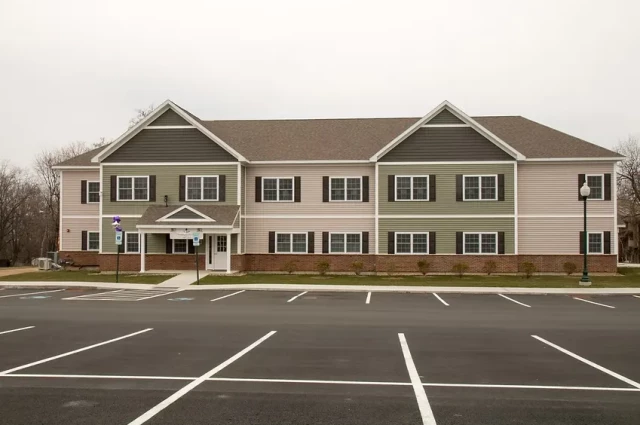Addictions Care Center of Albany Information
Treatment
Who We Treat
- Young Adults (18–25)
- Adults
- Seniors/Older Adults
- Midlife Adults
- Older Adults
- Male and Female
- Pregnant/Postpartum Women
- Pregnant Women
Treatment Focus
- Co-Occurring Disorders
- Drug Addiction
- Women
- Alcohol
Approaches
- Individual Treatment
- Evidence-Based
- Family Therapy
- Group Therapy
- Cognitive Behavioral Therapy (CBT)
- Motivational Interviewing
- 1-on-1 Counseling
- Online Therapy
- Life Skills Training
- Relapse Prevention Counseling
Conditions We Treat
- Trauma
- Perinatal Mental Health
- Co-Occurring Disorders
Substances We Treat
- Alcohol
- Chronic Relapse
Languages
- English
Aftercare
- Discharge Planning
- Recovery Coach
- Follow-up Sessions (in-person)
- Employment Counseling
- Continuing Care
- Employment/Vocational Counseling
- Support Meetings
Level of Care
- Residential Rehab
- Co-Occurring Mental Health
- Aftercare/Continuing Care
Experience
Personal Amenities
- Private or Shared Rooms
- Air-Conditioned Rooms
Smoking and Vaping Policy
- Smoking Not Allowed
- Vaping Not Allowed
Accreditations
-
Drug Enforcement Agency (DEA)
DEA accreditation refers to the process by which a law enforcement agency is recognized by the Drug Enforcement Agency (DEA) as having met specific training, operational, and resource requirements necessary to participate in DEA-led drug enforcement efforts. This accreditation allows the agency to perform DEA-related tasks such as conducting investigations, executing federal search warrants, and participating in joint task forces.
-
SAMHSA certification for opioid treatment program (OTP)
SAMHSA's Opioid Treatment Programs (OTP) Accreditation is a rigorous recognition process, signaling an OTP's commitment to high-quality care for those with opioid use disorders. It assures patients, families, and the community that the program adheres to evidence-based practices, maintains a safe environment, and employs qualified staff. This accreditation represents a commitment to addressing the opioid epidemic and promoting recovery, symbolizing quality and accountability in opioid addiction treatment.
-
State department of health
State Licenses, issued by government agencies, authorize rehabilitation organizations to legally operate within designated geographical areas. The specific licenses required for operation are typically determined by both the nature of the rehabilitation program provided by the facility and its physical location.

Addictions Care Center of Albany Accepts The Following Insurance Plans
Find the best treatment options. Call our free and confidential helpline today!

